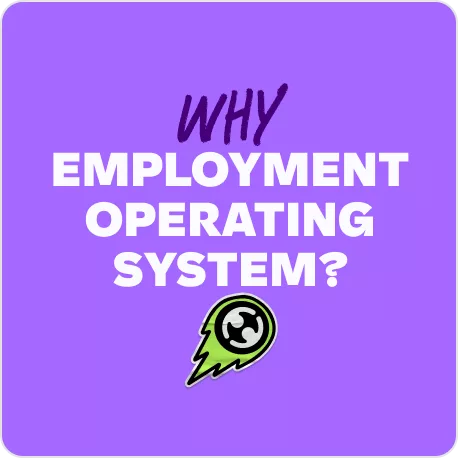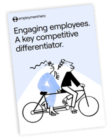Cultivating Emotional Intelligence in the Workplace
Let’s look into what emotional intelligence in the workplace means for your business.

Managing emotions is not only about suppressing negative emotions like anger and frustration. It’s also about being able to express positive emotions like joy and happiness. Emotionally intelligent people can regulate their emotions, so they can stay calm and constructive even in challenging situations.
Having emotional intelligence skills translates well into the workplace. Emotionally intelligent employees can manage their emotions, so they can stay productive and level-headed even during challenging times at work.
Fostering happiness in the workplace can significantly contribute to emotional intelligence, as happier employees tend to be more emotionally stable and productive. For more insights, check out these 11 ways to foster happiness in the workplace.
How do you define emotional intelligence?
First, let’s get a baseline on what emotional intelligence actually is. Emotional intelligence (EI), otherwise known as EQ (emotional quotient), can be defined as someone who has the ability to perceive, understand and manage their own feelings and their own emotions.
Once we have a clear grasp on what EI means, we can look into what emotional intelligence in the workplace means for your business.
What are some traits of emotionally intelligent individuals?
Someone who is emotionally intelligent usually displays these five distinct traits of emotional intelligence:
- Self-awareness – they have a conscious knowledge of their own character and feelings
- Self-regulation – they have the ability to regulate their own behaviour and emotions without intervention from anyone else
- Internal motivation – people who engage in behaviour from their own will power because it’s satisfying to them as an individual
- Empathy – a person who has the ability to understand and share the feelings of another
- Social skills – someone with good social skills is competent at communicating and interacting with others
Even from a quick glance, it’s easy to see how emotional intelligence matters in the workplace!
Clearly, employees with higher self-regulation, internal motivation and social skills have an advantage over those that don’t.
Improving collaboration in the workplace can also enhance emotional intelligence by promoting better communication and understanding among team members. Here are 8 ways to improve collaboration in the workplace .
Why is emotional intelligence important in the workplace?
Researchers found that emotional intelligence training boosted employee productivity and resulted in better evaluations from management.
The importance of emotional intelligence in the workplace is significant – here’s why.
Self-awareness
Understanding your own emotional strengths and weaknesses in the workplace is crucial. Everyone has a specialism and something they don’t care for.
Self-awareness involves knowing your limits and is great for team projects, where you can delegate certain tasks to others who may have better skills in a certain area. Having self-aware employees will make sure that the work being done will be completed to the highest of standards.
Self-regulation
The importance of self-regulation at work centres on your capacity to express yourself both openly and tactfully.
Someone who doesn’t have great self-regulation skills may be prone to sudden emotional outbursts, which is not a promising characteristic to bring into a working environment. An employee with higher emotional intelligence is also more likely to listen, reflect and respond to constructive criticism.
Motivation
People with high emotional intelligence need little intrinsic motivation from others. They take pride in accomplishing great things solely for the sake of personal fulfilment.
Internally motivated people are great to have in the workplace, as they don’t need others for support or stimulation when working on big tasks. They will work hard regardless. Leaders can benefit from understanding how to stay motivated and in turn, inspire their teams. Here are 7 ways to stay motivated as a leader.
Empathy
Empathy is the ability to understand how another person feels and experiences the world, especially when that perspective is very different from their own.
Empathic employees are great in the workplace, as they understand other people’s emotions, and other employees are more likely to follow somebody who shows genuine empathy towards them.
People skills
Having great people skills is very important in the workplace. In any business or any industry. It’s important to make friends and get along with other colleagues.
You want to make sure your company culture is skyrocketing, so having employees with great people skills is a good thing to have. Employees with high emotional intelligence are usually better at resolving conflicts as well. So you should encounter less workplace spats!
Another business benefit of having a workforce of employees with great people skills is in the areas of the business such as sales, marketing and customer services.
Creating an inclusive workplace can also contribute to higher emotional intelligence by embracing diverse perspectives and fostering a supportive environment. Here are 7 ways to create an inclusive workplace.
Keep their cool under pressure
Emotionally intelligent employees are more likely to keep their cool under pressure. This could lead to them making better business decisions and displaying an overall higher level of job performance.
Examples of emotional intelligence in the workplace
Looking to see where your team stands in terms of emotional intelligence at work?
Here are some signs of emotional intelligence in the workplace:
Example #1. People listen to each other in meetings
The first working example of emotional intelligence done right in the workplace is when people in your business listen to each other in meetings. Meetings, where everyone is talking over each other and fighting for the last word, are not good for business.
And surprise – they’re also a tell-tale sign of a lack of emotional intelligence. When people are allowed to speak, and others listen without constant interruptions, it’s a good sign of emotional intelligence at work. It shows mutual respect between your employees and is more likely to lead to a constructive conclusion in that meeting.
Example #2. People express themselves openly
A workplace where people feel confident in speaking their minds, exchanging views and expressing their emotions is also demonstrating emotional intelligence.
Basically having an overall good thread of communication in the workplace is a sign of a positive work environment and high emotional intelligence.
Example #3. Flexibility
Lastly, we have flexibility. Building flexibility into the way your employees work can be the difference between retaining top talent or having high turnover rates.
Emotionally intelligent leaders understand the changing demands of others and are prepared to work with them rather than trying to impose restrictions on how people go about their work. Learning how to inspire your team is another crucial aspect of emotional intelligence and leadership. Discover how to inspire a team at work.
How do you increase emotional intelligence in the workplace?
Now we know a little bit more information on what emotional intelligence looks like and why it’s beneficial in the workplace. So let’s look at how you can increase emotional intelligence in the workplace.
One of the most important things you can do to enhance emotional intelligence in your workplace is to lead by example. If you’re a manager, this means being open and honest with your team, showing vulnerability, and being receptive to feedback.
It also means creating an environment where employees feel comfortable doing the same.
Here are a few things that you and your employees can do to help improve emotional intelligence across the board.
1. Develop emotional awareness
In order to rationally manage your emotions, you must be aware of them in the first place. In any industry, in particular HR, most days come with emotional stress.
Sometimes you just need to take a little time to process what’s happening. Even if your busy schedule is jam-packed, all you need is five minutes a day to switch off your brain and reconnect to your own emotions.
Setting up time in your day, whether that’s before, during or after work will help you work on the emotional awareness aspect of EI. Having that time to yourself to sit and reflect on your behaviours and emotions will give you better insight into your emotional responses, so you can work on them in the future.
2. Be honest
People who are emotionally intelligent don’t just stuff their emotions and feelings into a box.
They are more open and honest about how they feel. Learn how to maturely express how situations are affecting you.
Start small, and speak up more in meetings if you disagree with something or if you think something needs more attention. Learning to stand up and be a more open and honest communicator by letting people know when you are struggling, needing help or delegating tasks.
3. Stay cool, calm and collected
A part of being emotionally intelligent is being able to stay cool, calm and collected at all times. Having emotional stability and control of your emotions at all times.
This is a hard skill to learn, so until you master it, you’re going to have to allow yourself to walk away at times. When things in the workplace get a little heated, it’s best to let things cool first.
When problems are fresh, we aren’t always ready to address them. Most people will respect you more if you ask them to let you continue the conversation after you’ve had some time to process what’s going on.
4. Cultivate good emotional health
Emotional health is just as important as your physical health, but it’s often not given the attention it needs. Having a better work-life balance can help make sure your emotional health is ticking over.
A few ways to offer work-life balance in the workplace are;
- Provide flexible hours to your staff, including seasonal hours
- Allow employees to work from home when they need to – providing your staff with laptops and the correct equipment makes working remotely much more possible
- Implement less rigid lunch schedules – your employees know how long they get for lunch and what their to-do list looks like. Trust them to make the right decision and juggle their own time effectively.
- Create a more relaxed workplace. Encourage staff to engage in social or team-building activities that get them working better together. It’s also good to get them to talk about things other than work! It helps with workforce bonding and establishing your company culture
- An open door policy to encourage your employees to be more honest and communicate more with leaders and managers
There are plenty of other ways to make sure your employees are getting the right work-life balance.
5. Set goals
Setting goals to increase your emotional intelligence in the workplace is important.
Goals such as identifying your emotional weaknesses, improving your people skills by going to lunch with coworkers you don’t know that well or not complaining about things are all small goals that will help you measure your EI improvements.
6. Create a culture of workplace emotional intelligence
Improving emotional intelligence takes practice. Businesses should create a culture where employees and managers alike can practice and perfect their emotional intelligence. It shows your employees that your business cares which is good for their over wellbeing.
Company culture is very important when it comes to increasing emotional intelligence in the workplace – we have a whitepaper on the very topic. Take a look!
Cultivate a positive work environment
If you try to implement even just a few of the approved suggestions, you’ll notice that your emotional intelligence will only increase.
Get your whole team on board, and you’ve got a workforce fueled by emotional intelligence which will have outstanding benefits for your business goals, outcomes and overall performance.
Related Resources
-
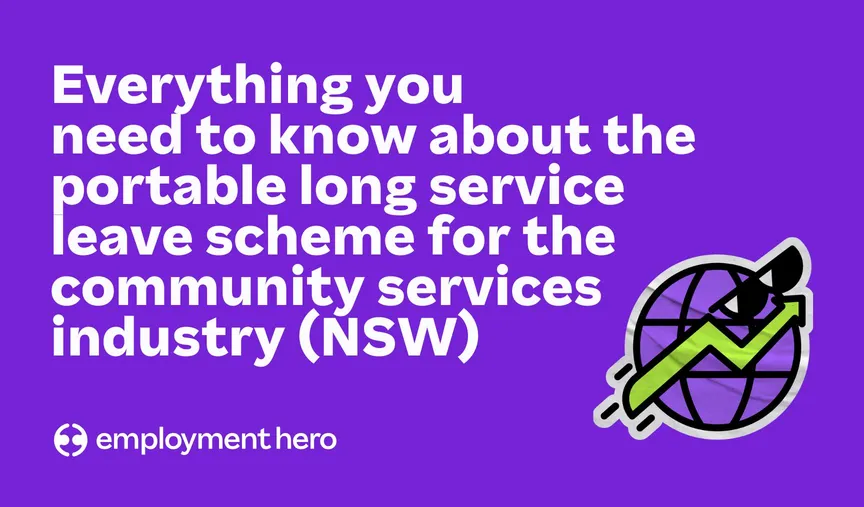 Read more: NSW Government introduces Portable Long Service Scheme for the Community Services Industry
Read more: NSW Government introduces Portable Long Service Scheme for the Community Services IndustryNSW Government introduces Portable Long Service Scheme for the Community Services Industry
The NSW Government has introduced portable long service leave for the community services industry. Learn what it is and what…
-
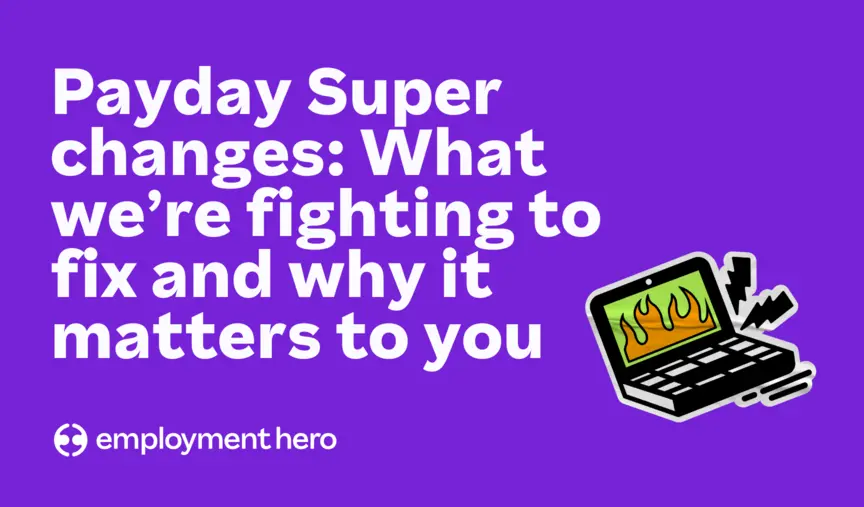 Read more: Payday Super changes: What we’re fighting to fix and why it matters to you
Read more: Payday Super changes: What we’re fighting to fix and why it matters to youPayday Super changes: What we’re fighting to fix and why it matters to you
Big changes are coming to how superannuation is paid in Australia. Here’s what we’re asking Treasury to seriously consider updating…
-
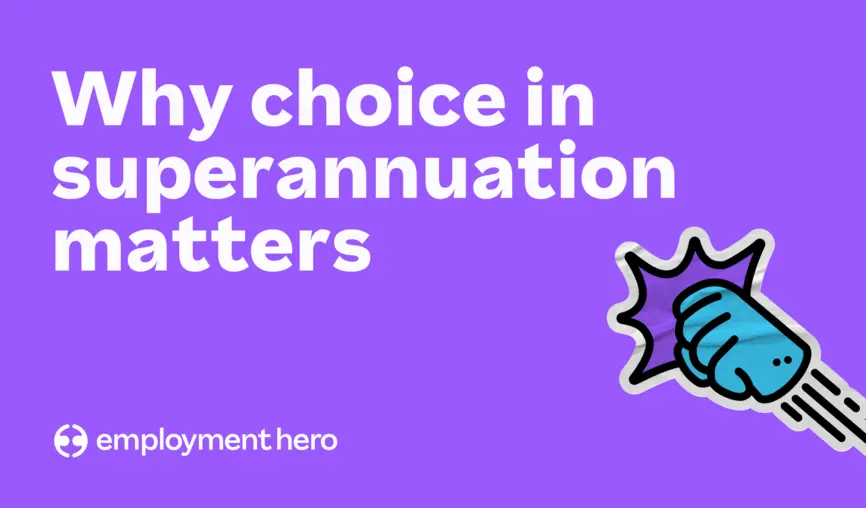 Read more: Why choice in superannuation matters
Read more: Why choice in superannuation mattersWhy choice in superannuation matters
What could be coming when Payday Super hits and what Employment Hero is doing about it.



